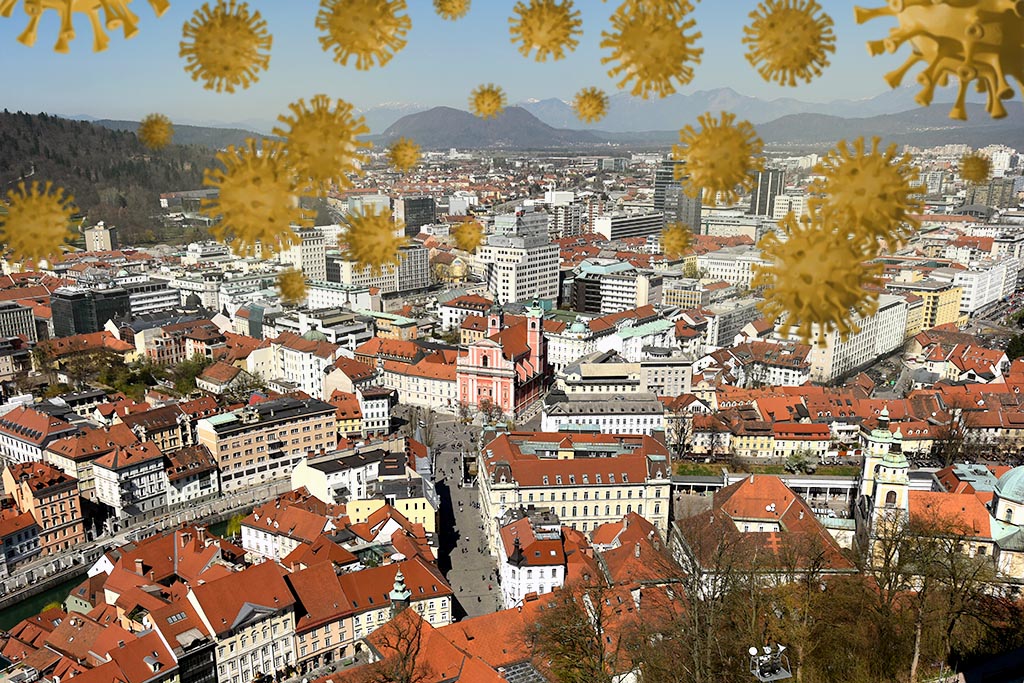By: UKOM
Yesterday’s press conference on the current situation regarding COVID-19 was attended by Mateja Logar, the Head of the Advisory Group of the Ministry of Health, and Tomaž Vovko, specialist in infectiology and intensive care medicine.
A total of 1,484 PCR tests were carried out on Sunday, of which 287 were positive, amounting to 19.3 per cent. In the last seven days since Easter, the following numbers of positive cases were recorded by days: Sunday (283), Monday (273), Tuesday (1189), Wednesday (1527), Thursday (1279), Friday (1250), Saturday (548) and yesterday 287. On Sunday, 5,850 rapid antigen tests were also carried out. There are 13,819 (known) active COVID-19 cases in the country. The 14-day incidence rate amounts to 654 cases per 100,000 citizens. A total of 636 patients are in hospitals, of whom 142 require intensive care. Seven patients have died.
It can be determined with moderate optimism that the numbers of positive COVID-19 cases in recent days suggest that the exponential growth of the epidemiological curve has stopped, is how Logar summarised the data. More specific effects of the partial stoppage of public life will be revealed by the end of this week.
The country will resume the regional principle of easing the measures next week, which is why some parts of the country will be able to enter the orange phase as per the attained seven-day average of positive cases, resulting, for example, in the opening of terraces and outdoor restaurant areas.
As regards the vaccination, we are currently above the European average. More vaccine will be available in May and June, and the aim is to vaccinate as many people as possible by the summer holidays.
Those who have recovered from COVID-19 enjoy the same benefits as the people who were vaccinated, which even triggered certain instances of people wanting to become infected so that they could recover from the disease. The advisory group is thus thinking of excluding the convalescents from the benefits they currently enjoy.
The decision-makers believe that it is more rational to carry out the self-testing of pupils and students in schools rather than at home. The main purpose of this measure is to discover those who have not yet developed the symptoms but are already spreading the virus to others.
One third of all Slovenian patients requiring intensive care are currently being treated at Ljubljana University Medical Centre. The unit was established in autumn 2020 in the renovated premises of the diagnostic and therapeutic service and is prominent both due to its size and the number of such patients being cared for at one facility. Patients who recover from COVID-19 are severely affected by the disease and considerable efforts are required for them to return to their normal lives. Vovko notices that a serious course of the disease occurs more frequently with younger patients, which is indirectly attributed to the UK strain being more high-risk for the difficult course of the disease. Many unknowns remain about the disease and we are especially unaware of its long-term consequences.
Source: gov.si
